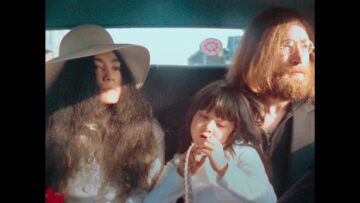
TO WATCH: “ONE TO ONE” BY KEVIN MACDONALD
This documentary feels like reliving a time through the eyes of Ono and Lennon.

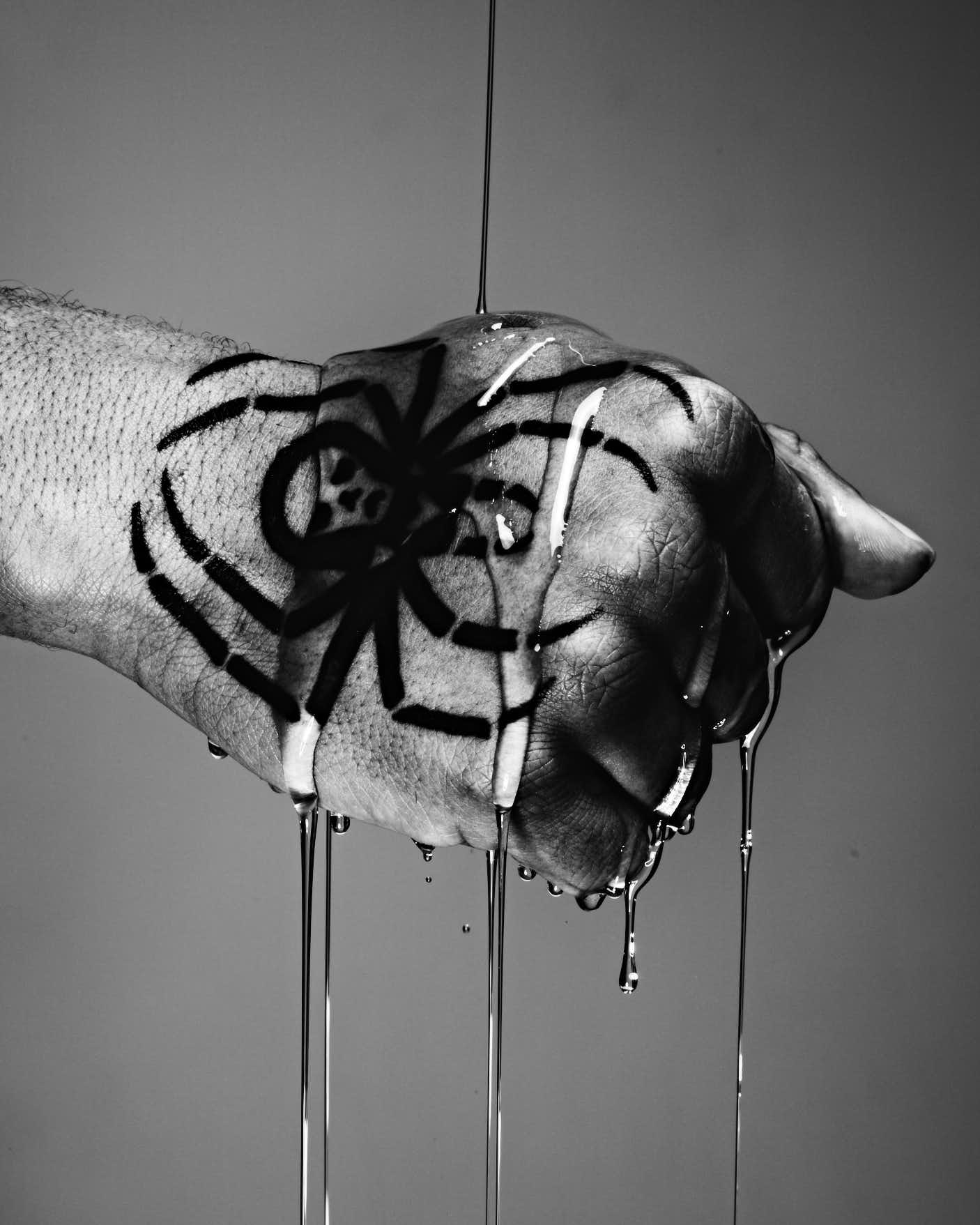
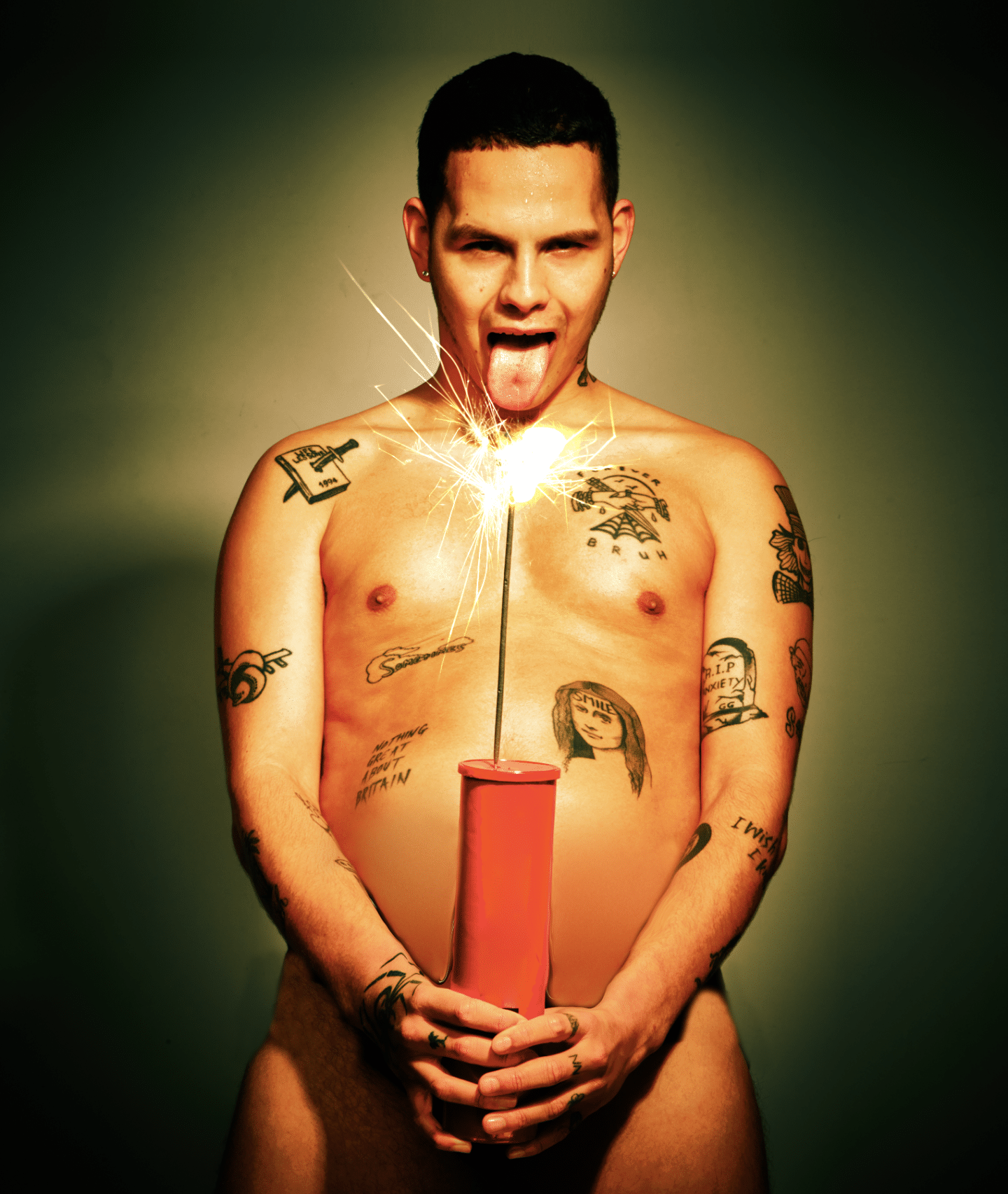
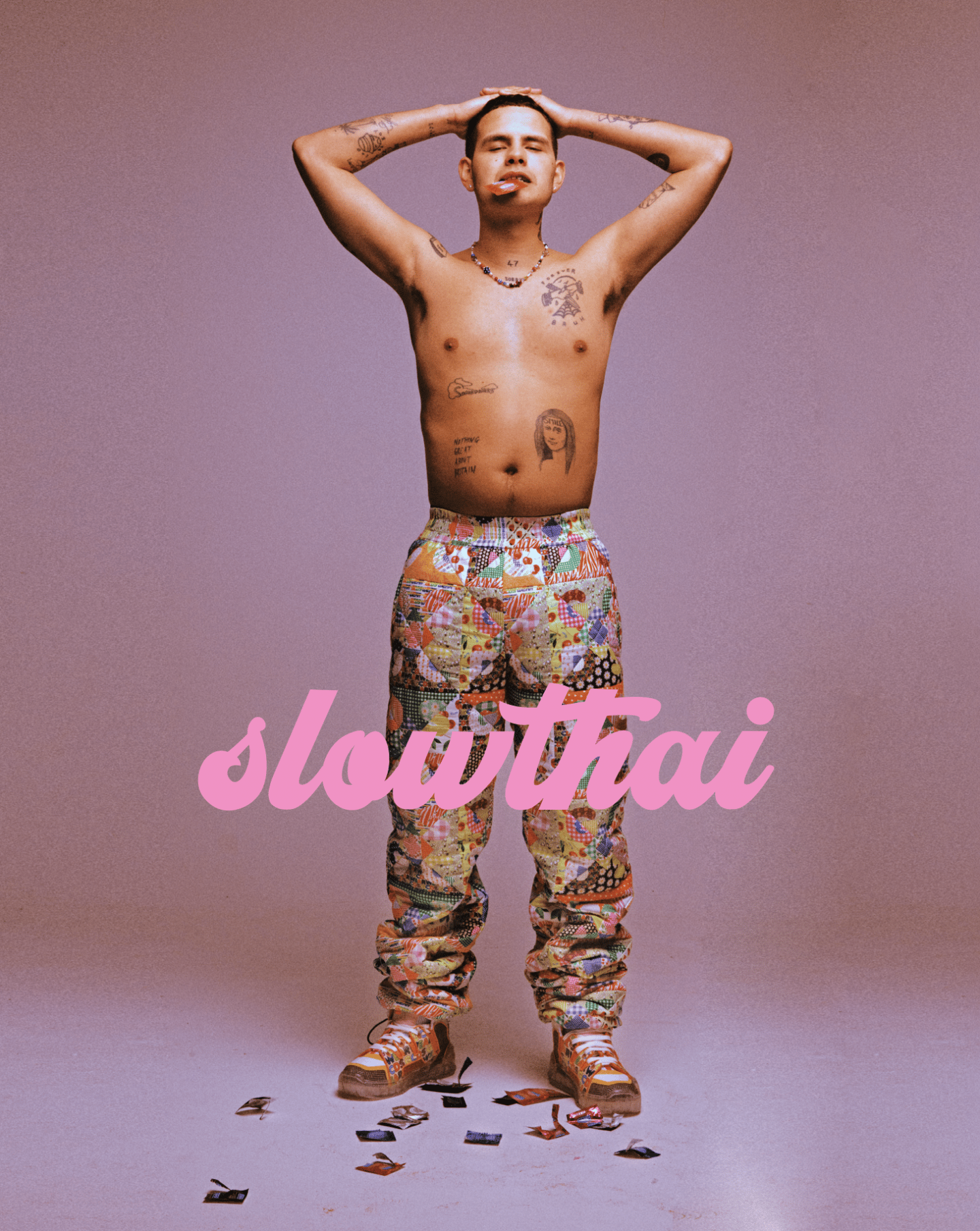
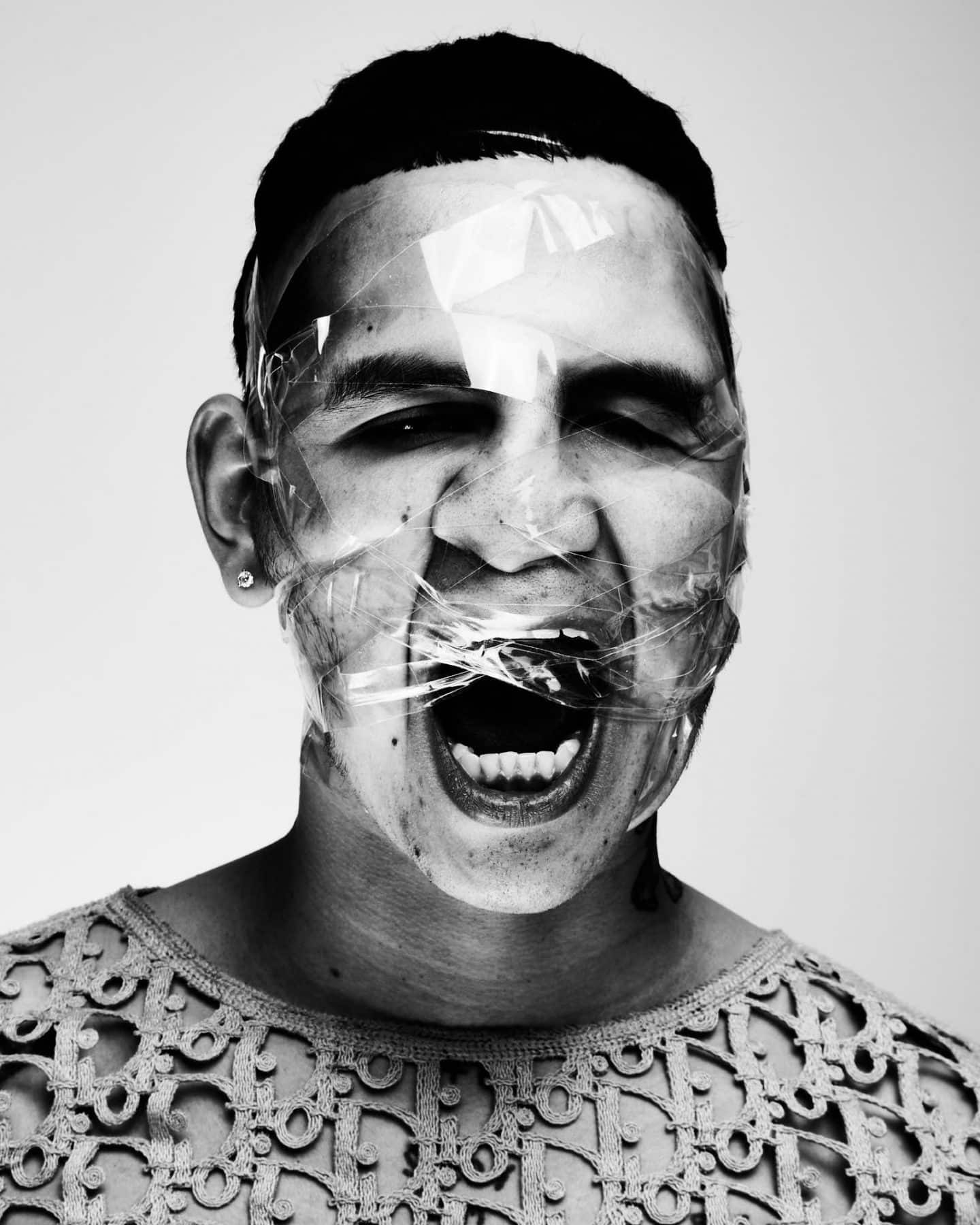


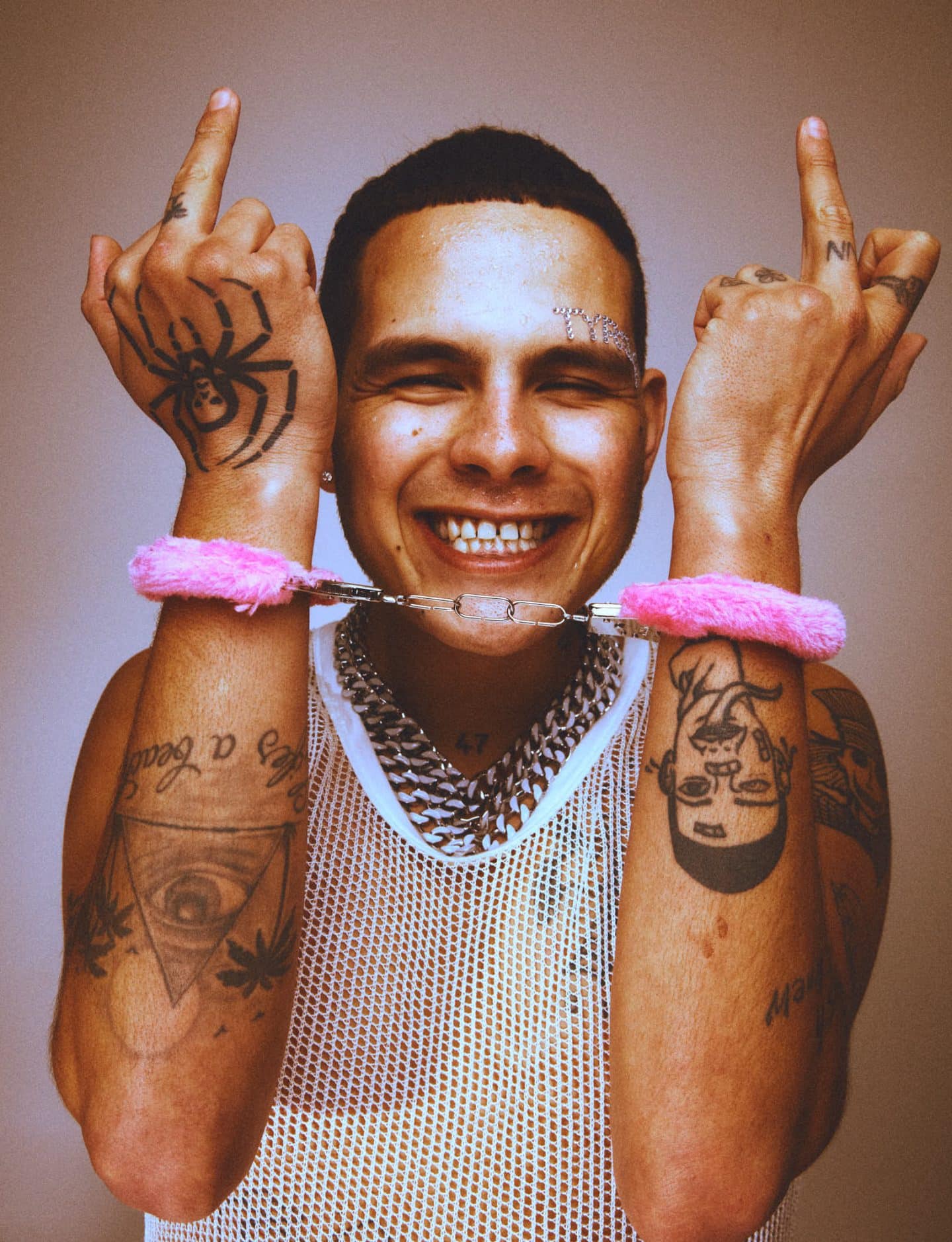
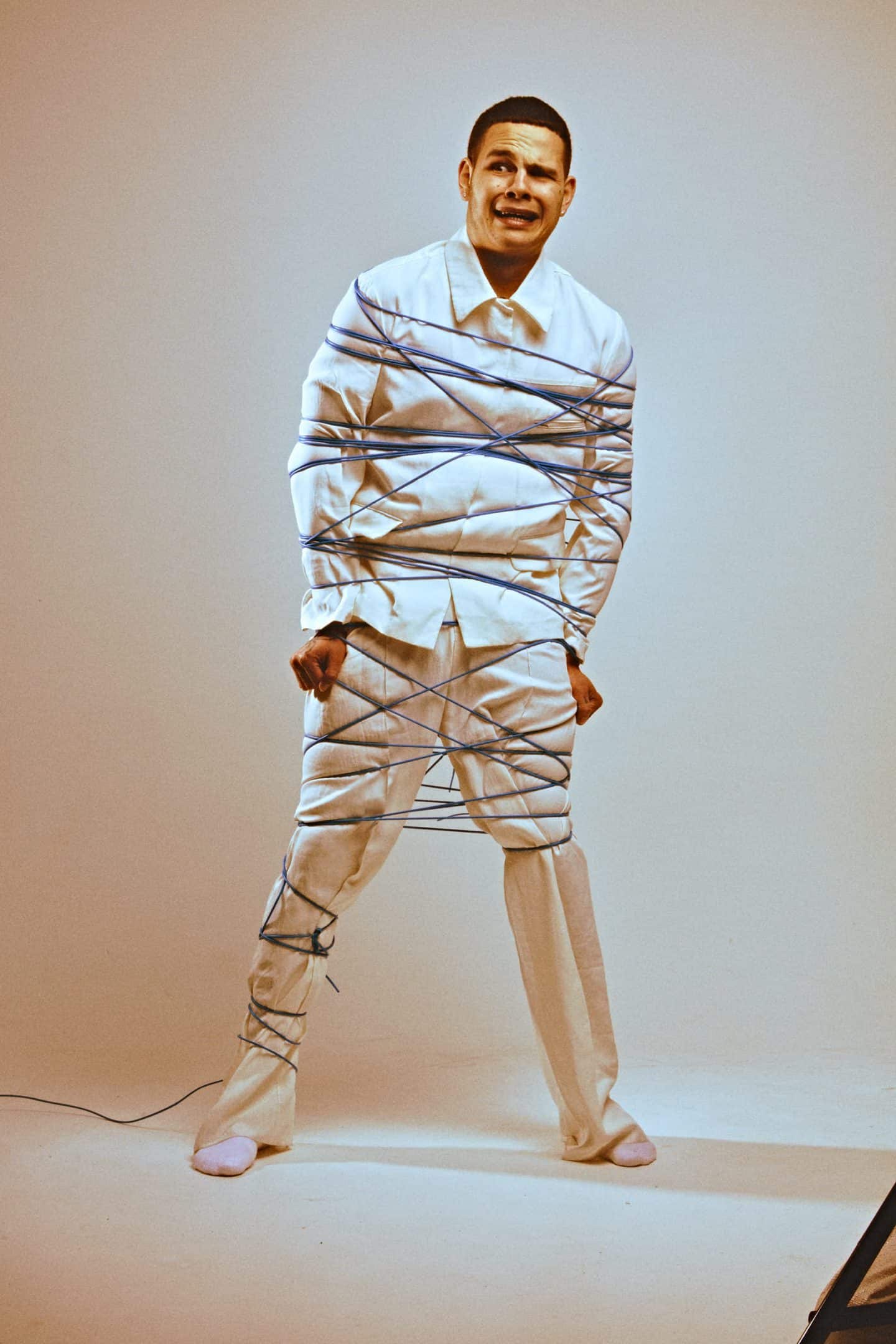
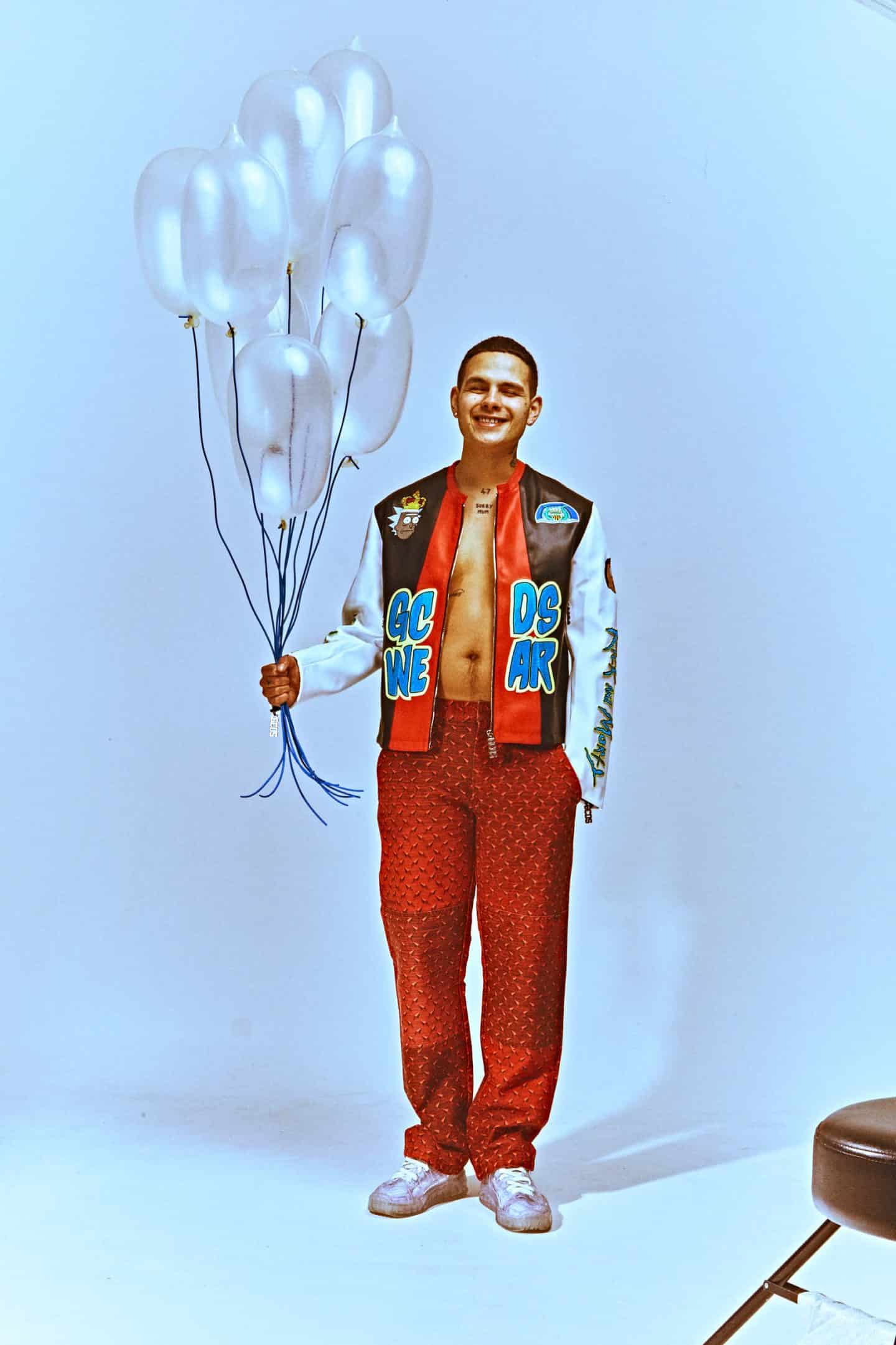
Tyron, slowthai’s eponymous album made in isolation this past year, offers emotional insight into his journey of personal growth to be a better person and prove people’s worst expectations of him wrong. We catch up with the rapper with the irrepressible smile for perspective on his dualities of interiority and acting out, aggression and vulnerability, depression/being on top of the world, and to get a look at the real person behind the jewelry.
Slowthai is relaxed. For now, anyway. He’s tired, too. He’s been up half the night systematically tidying all his clothes and couldn’t bring himself to stop. Now, he’s in his basement studio drinking a cup of tea and drawing idly on a cigarette. It’s where he made most of his recent album Tyron, and it’s as solid an incarnation of the sophomore rapper as you’re likely to get.
The space is stacked with gear, analogue mostly, and the whole joint is somehow chaotic, somehow careful, but very much his own. “Nah, nah, nah,” he says quickly, wagging his cigarette in denial, “It wasn’t like this at the beginning, but fuck it, if I’m gonna spend money on something, I might as well invest in my craft.”
He’s in the middle of explaining exactly how it got to the way it is now when, all of a sudden, he shouts up to a friend, “I beg you, bring me a snack.” It’s a chocolate bar of some kind, and it’s graciously received if not yet devoured when he jumps straight back in. The almost minute-long silence seeming to pass him by completely.
Tyron Frampton does this a lot. His mind and his body slip in and out of sync with one another. When he’s got an idea in his head, he’s electric. His whole aura pops with vibrant color for just a little while before spooling back out into hazy shades of gauzy, stoner sepia. In any instant, you’d be forgiven for thinking he’s got his head so far in the clouds (he does, he says) because sometimes he buffers for a second or two, only to return, a moment later, all the more engaged. All the while dropping sharply chiseled insights in regular conversation as deftly as he would a bar on a verse, punctuating the excited interludes with sharp, animated drags.
For all the caricature in slowthai’s music, Tyron’s character is remarkably mellow. He smiles when he talks. He beams, really. And the way he dives headlong into his memories to weave some tall tale or other is enchanting to watch.
“When you’re out there, it’s easy to get carried away with yourself. When you come home, no one is expecting anything of you.”
By “out there,” he’s referring to his life as an artist. But whether he’s on a stage or in his basement, you get the feeling that both sides of his life have felt the weight of expectation more keenly than most.
“I love what I’m doing, but it’s just everything that comes with it… I signed up for this, I could never expect to just live a normal life.”
It’s not just his stage presence, though; expectations, both positive and negative, have dogged him for as long as he can remember. And when you’re the kid that nobody ever believed in, there’s a little bit of added spice.
“I’ve always been the black sheep of the family who has always been the one who wouldn’t do nothing or couldn’t do nothing because of who you are and where you’re from,” he says, his smile still plastered all over his face. His brazen honesty elicits empathy and you can’t help but relate as he tells you just how much he enjoys proving people wrong. “It’s always nice. If people tell me I can’t do something, I’m going to do it, because that’s just what’s in me. I’ve never been someone to go with everything and follow the rules. I want to live how I want to live.”
His is an overwhelmingly present tense mentality and it’s one that has gotten him into trouble on numerous occasions. Most publicly, in the odious spat at last year’s NME awards. Anyone could tell you that Katherine Ryan came out on top, but the fact is, that win or lose, no one should have to play the game at all. An ugly joke, an obnoxious energy, an all-too-easy swing, rightly followed by a dismal miss.
Unarguably his most controversial moment as an artist and the inspiration behind Cancelled, the most contentious track on his new album. Cancelled is a big track. A single, proper. But anyone listening can tell that it’s one where Skepta shines, not slowthai. Honestly, he’s always playing catch-up, reflecting as much as he can muster, the energy of another artist bristling with confidence.
Reflecting, deflecting, redrawing the lines in his own image. It’s a process that he has been through time and time again this past year while recording Tyron. “I’ve always been cancelled,” he says, smoking methodically now. “It was the same thing that night, or the night before at the Mercurys [awards], or anything I’ve said or done that people want to analyze and make me out to be the bad guy.
“If that’s what you want to see, that’s your perspective. It’s not like this album’s all about me. It’s about everyone else out there. There are two sides and those two sides speak volumes for what kind of a person you are. So, whatever side you prefer is what you’re more into, what you’re more inclined to listen to, what is more to your palate. That is, if you’re more of a normal person, someone who’s interested in other people, or what’s going on in my life, or if that’s how you felt, you relate to that. If what you got was just the hype and the drama and the aggression, it’s what you got if you’re an arrogant, ignorant person.”
He checks himself immediately. “Maybe I shouldn’t say that. You might just like the intrigue, you know, that’s how it was made.”
It’s as present and yet as distant as he gets. An unusually tempered moment that smacks of the kind of battle-hardened mentality that many people might expect from a proudly working-class rapper with a back catalogue stuffed with abrasive, high-energy bangers.
Still, it seems unlike him. And, conversely, yet perhaps crucially, it only has the effect of bringing him, Tyron Frampton, into what feels like sharper focus and blurring out the contemplative surroundings of his unassuming basement studio, his artistic retreat.
It’s one moment where we get what we expect from both slowthai and Tyron Frampton. One moment where two intertwined but independent lives are smashed together in the public eye. It’s what some people want, he thinks.
“It’s like everyone needs someone to laugh at. They did that one thing, and that’s what makes their life more exciting. I suppose if you just look for one thing in life, you can; you will have a negative mindset, but you can. When you see someone fall over, very few people’s first instinct is to help them out. It’s kind of like we bond together over bitterness, but I always laugh.”
For all his boundless positivity, his sprawling grin and languorous drawl, it’s hard not to notice a fatalistic streak in him when he talks. It’s not just that he’s aware of some creeping, malevolent presence waiting to take him down. It’s that he accepts it. That’s just the way it is. It’s part of growing up how he grew up, part of managing expectations to be one thing or another, part of acting up, part of acting out, part of him, inextricably.
“You pick things up from people. Whether it’s traits you agree with or not, and then you push them even more. I suppose it could be a form of anxiety where you have to overdo something to force people away from your vulnerability.”
There’s a line on NHS, a down-tempo, call and response tune, and one of the album’s most affecting moments where slowthai asks, “What’s a rapper without jewelry?” Then, as if left between one beat and the next, all alone on the track, the reply: real person.
“That thing about the jewelry is that everyone’s always going to look at it, take that as gospel, and think that’s you. But, behind everybody, there’s the person, and it’s behind every silver lining, too.”
It’s one of the things that you notice quickly about slowthai, the way he talks. He’s just got one of those voices, it’s undeniable. But lean a little closer and you’ll hear the way he speaks – his honesty, his openness, his intelligence. Everything is always expressed in the plural, very rarely does he keep any of it for himself, and when he does, he thinks, he supposes, he guesses. The very moment that he is sure of something, he gladly gives it out to anyone and everyone, whether they resonate with it or not. After a long year of reflection, Tyron is evidence to that fact.
Tyron isn’t really about himself so much as it is for himself. What makes the amplified caricatures of slowthai’s music so relatable is that they offer an intermediary with which people can interact with intense themes and feelings at arm’s reach.
“I feel like a lot of us have been in the same place or predicament,” he explains, “being pissed off or an angry teenager and growing up. You can lead a horse to water, but you can’t make it drink. So, in some way, you’ve got to make it so that people can take it in.”
Often, when he’s looking for a metaphor for personal growth, he leans heavily into his past, his childhood. It’s a somewhat unusual mindset for a young man of 26, let alone one with two critically acclaimed albums and a bonafide rags-to-riches story under their belt. But, it’s indicative of his character, and regardless of the fact that it is often self-inflicted, it is one that has burned. So, wisely, when he is in need of a salve, he looks closer to home. In here, not out there.
“I just want to be a better artist. Every day I’m trying to be better. I’m trying to be better as a human being. I’m trying to take more care of the people I love.
“If I’m going to speak to people and leave an impression on them, I have to live by and lead by example. Obviously, I’m human and we all make mistakes, but I feel like I’ve learnt my fair few lessons now.”
As a young man caught between aggression and vulnerability, Tyron Frampton is not alone. While these are repeated themes on both his debut album Nothing Great About Britain and now on Tyron, you do get the feeling that he is growing.
“We all have our things that we disagree with in life. When you get older, things change, your perspective changes and I suppose being that angry kid that no one believed in, to then being not as angry as some people believe, there’s always going to be some kind of animosity.”
Conflict is painful. In most cases it’s unnecessary, but in some it’s unavoidable. On the one hand, there’s the knowledge that you’re more than good enough to succeed, and on the other, there’s coming from a place where people don’t just expect you not to, it feels like they actively don’t want you to.
“There’ll be people that didn’t believe in you that now believe in you. Then there’s people that just want to see you fail. It’s a constant in life, no matter where you are. If everyone loved you and everyone was on your side from the day you were born, your life would be pretty fucking shit. And you wouldn’t have grown or got stronger or moved in any direction because everything’s great.”
Finding resolution through conflict takes time and balance, moving slowly on occasion and forcefully on others, to develop a masculinity that is a little bit more palatable.
“Sometimes it drives you in the wrong direction. Then it becomes you. My thing is I try to ignore it, but no matter what you do, it’s always there in the back of your mind.”
Still, it’s not in his nature to be guarded. He would rather be burned, time and time again, than board himself up.
“I remember when I was younger and I got into some dumb shit. For so long, I didn’t feel nothing; literally, I was cold, inside and outside, I couldn’t cry. After a while, it all came out, and I felt better for feeling that way than I did when I was feeling nothing.”
That’s evident in his music. Over the course of a mere 35 minutes, Tyron moves through a lot of emotions and his million miles an hour approach doesn’t so much patch over old wounds as it does tear them anew. As if inviting fresh conflict, fresh resolution. While that might not make sense to some, for many, it’s the only way they know how to deal with things. Time and time again, he’s said that Tyron was recorded at a dark, dark point in his life. Judging solely by the pacing of his art, you can sense deep rifts in his mood, and times where he has not been able to separate himself or find distance.
“When it’s going shit, time slows down and you feel like you’re stuck in a void of fuckin’ depression. Life moves so slow and it seems like the days never end. Then, when you’re on top of the world and everything’s great, and you’re here, there, and everywhere, you don’t know whether you’re coming or going. You don’t know what day it is and you don’t care to be honest.”
Yet, that time on the outside has slowly granted him perspective. It’s shown him how to analyze things in his own way, not to throw all his cards in at once. In the last year, he’s learned a lot about life, but mostly he’s learned to accept the times when he doesn’t understand it at all.
“I know sometimes I shouldn’t drink and I shouldn’t act on impulse as much or aggression.”
He’s learned how to think one thing and perform another, it’s maybe how he learned to flex his body and his mind independently of another and how to have his head in the sky and still stay sharp.
Now he’s looking to the future, looking to his next project and he already knows what he wants it to be.
“I want it to be like the thing that ties us all together.”
Slowly learning from his own mistakes, he won’t let that thing be bitterness, but it won’t be happy-clappy either. Tyron Frampton leans on his past when he is unsure; it’s a natural response to a life that moves so fast and it also keeps him in tune with his upbringing. It’s not cynicism, it’s not being jaded, either. It’s one part chip on the shoulder and one part winking acceptance that comes part and parcel with growing up with heaps of potential in places where you’re not supposed to have much.
“We’ve all got more than meets the eye. You keep pulling back layers until you get to see it and that is a painful process. Even though we’re all so different, we all suffer this irony of everyday life. Whether you’re an office worker or you’re a builder or a billionaire at the top of a corporation, what are the things that tie us together now? You’ve got no money, you’ve got problems; you’ve got money, you’ve got problems. The only thing that is the ultimate currency that we can’t waste is time. That’s my perspective, that’s the change in it.”
Some things change fast, some things change slowly, and some things never change at all. As always, his next project will focus on what he knows for sure. What he knows is fast, sometimes painful, but always smiling. Smoking slowly now, he reckons that at the end of the day, you just have to know yourself. Know yourself 100% and nobody can ever tell you anything.
“I’m taking the right steps. I love myself. I love my family and I love everyone that’s on the journey with me. In my head, I’m still the same. I’m still in the basement.”

This documentary feels like reliving a time through the eyes of Ono and Lennon.

On being brave: Numéro Berlin spoke with Little Simz about her freshly released sixth…
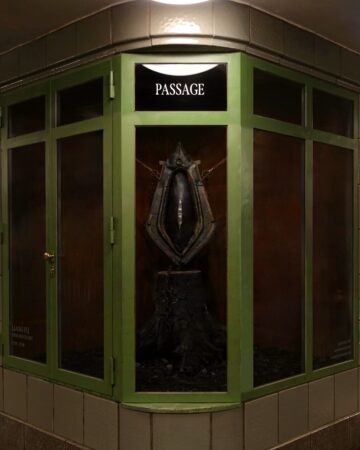
With his latest installation "SPINE BOUNDARY" at Hermannplatz, Berlin, Chinese born Artist…